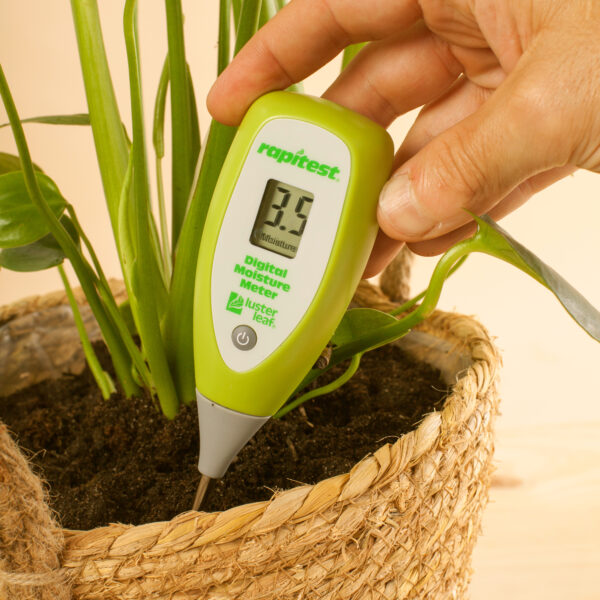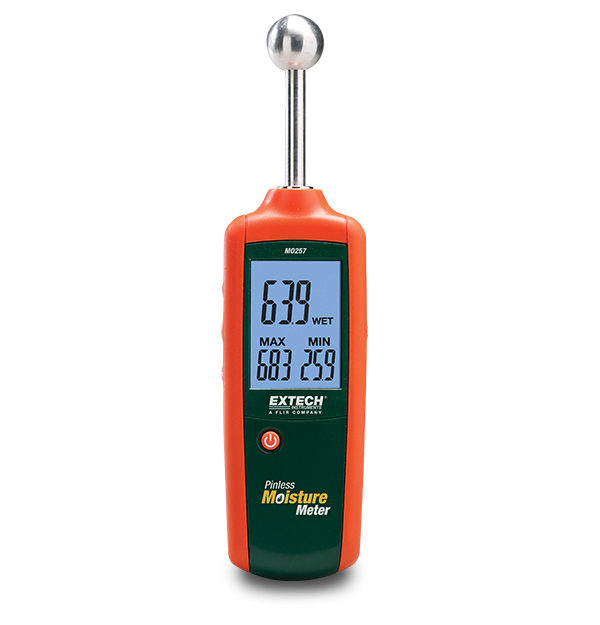Moisture Meter Acquiring Overview: What to Look for in High-Quality Instruments
Moisture Meter Acquiring Overview: What to Look for in High-Quality Instruments
Blog Article
The Ultimate Overview to Wetness Meters: A Comprehensive Summary and How They Can Conserve You Money
Dampness meters serve as crucial tools in finding and keeping an eye on moisture content in products, assisting in preventing expensive problems and making certain the quality of products. Recognizing the subtleties of different kinds of moisture meters, their applications, and the possible cost-saving benefits they provide can be a game-changer for businesses and professionals alike.
Sorts Of Dampness Meters
Various sorts of moisture meters are offered for various applications in various markets. One typical kind is the pin-type dampness meter, which gauges the electric resistance in between two pins placed into a material. This type appropriates for timber, drywall, and various other structure materials. Pinless moisture meters, on the various other hand, usage electro-magnetic sensing unit plates to check a bigger area without causing damage to the material's surface area. Moisture Meter. These meters are excellent for rapidly evaluating moisture levels in large areas such as floorings and wall surfaces.

Furthermore, there are additionally specialty dampness meters made for specific materials like grain, hay, or soil. These meters offer exact wetness analyses tailored to the unique properties of the product being examined. Infrared wetness meters gauge the thermal properties of a material to identify its dampness web content non-invasively, making them helpful for applications where pin or pinless meters might not be suitable. Recognizing the various types of dampness meters available can assist industries select one of the most suitable tool for their particular moisture dimension needs.

Benefits of Making Use Of Wetness Meters
Wetness meters offer very useful benefits in properly assessing and keeping track of dampness degrees in diverse materials and environments (Moisture Meter). One of the main advantages of using wetness meters is the avoidance of prospective damage brought on by excess moisture. By identifying and dealing with high moisture degrees early, moisture meters aid to avoid mold development, rot, and architectural damage in structures, saving both money and time on repair work. Furthermore, dampness meters help in making certain the top quality of products throughout building and construction or manufacturing processes. By accurately measuring moisture content, these devices aid keep the integrity of wood, drywall, concrete, and various other products, lowering the threat of failures or defects.
In addition, making use of wetness meters can lead to raised energy performance. In farming settings, moisture meters play an essential duty in enhancing plant returns by allowing farmers to check soil wetness degrees and make educated irrigation decisions.
Just How to Select the Right Wetness Meter
Choosing the proper dampness meter involves considering vital factors such as material compatibility, measurement variety, and calibration precision. When picking a moisture meter, it's important to make sure that the meter is ideal for the details material you will be testing. Different materials have differing electric residential properties that can influence dampness analyses, so picking a meter designed for your material is crucial for accurate results. Additionally, think about the measurement variety of the wetness meter. Make sure that the meter can find dampness degrees within the variety needed for your applications. Calibration precision is one more vital factor to bear in mind. Choose a wetness meter with dependable calibration to ensure consistent and accurate analyses. Some meters may call for routine calibration changes, so recognizing the calibration procedure is essential. By meticulously reviewing these aspects, you can select a moisture meter that meets your requirements and offers accurate dampness dimensions for your jobs.
Appropriate Strategies for Wetness Meter Use

Cost Savings Via Dampness Meter Applications
How can the tactical utilization of wetness meters lead to considerable expense financial savings across numerous industries? In the farming industry, wetness meters official source aid in establishing the ideal time for gathering crops, preventing excess or over-drying moisture that can affect the last product's top quality.
In a similar way, in building, moisture meters assist protect against expensive problems by finding moisture levels in building products, such as wood or concrete, which can result in architectural concerns if i loved this not attended to without delay. By determining problem areas at an early stage, professionals can take restorative measures to stay clear of extensive repairs or substitutes, eventually conserving money and time.
Furthermore, in the food handling sector, dampness meters are vital for checking item quality and guaranteeing compliance with safety and security regulations. By accurately measuring moisture material in foodstuff, producers can avoid perishing, preserve freshness, and minimize waste, causing substantial price financial savings. Generally, the strategic application of moisture meters is a valuable investment that can lead to substantial cost decreases and boosted performance throughout numerous markets.
Final Thought
Finally, wetness meters are important tools for discovering and gauging wetness levels in various products. By using the best moisture meter and following proper strategies, individuals can successfully avoid costly damages created by excess wetness. Spending in a quality dampness meter can cause considerable cost financial savings in the long run by identifying possible problems early on and making it possible for timely remediation. Eventually, moisture meters are essential tools for maintaining the honesty and longevity of materials and frameworks.
Dampness meters offer as indispensable devices in spotting and keeping track click this of moisture content in materials, assisting in preventing expensive problems and making certain the quality of items. Infrared dampness meters measure the thermal homes of a product to establish its moisture material non-invasively, making them beneficial for applications where pin or pinless meters might not be ideal.Moisture meters provide vital benefits in accurately keeping an eye on and examining moisture levels in varied products and environments. In agricultural settings, wetness meters play a critical role in optimizing plant returns by allowing farmers to check dirt dampness degrees and make educated watering decisions.In conclusion, moisture meters are important tools for gauging and identifying dampness degrees in different products.
Report this page